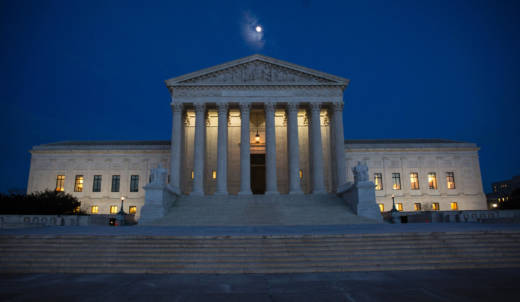But the court said travelers from the six countries -- Iran, Libya, Somalia, Sudan, Syria and Yemen -- can be exempted from the ban if they have a "bona fide relationship" with a person in the U.S., including close family members.
The legal question here is centered on how to define a "bona fide relationship." As we reported, the Trump administration argued that assurances from a refugee agency are "not sufficient" to constitute this relationship.
However, the judge in Hawaii rejected this argument. "An assurance from a United States refugee resettlement agency, in fact, meets each of the Supreme Court's touchstones: it is formal, it is a documented contract, it is binding, it triggers responsibilities and obligations," federal District Court Judge Derrick Watson wrote. "Bona fide does not get any more bona fide than that."
The Supreme Court justices, however, stayed that portion of the Hawaii judge's order, without elaborating. It sent the case back to the 9th Circuit for a ruling. The Trump administration had asked the high court to settle the dispute, leapfrogging the 9th Circuit, which the justices denied without comment.
The order said that Justices Clarence Thomas, Samuel Alito and Neil Gorsuch would have stayed the entire lower court order, including the broadening of close family categories.
Naureen Shah, Amnesty International USA senior director of campaigns, stated that today's order "jeopardizes the safety of thousands of people across the world, including vulnerable families fleeing war and violence."
Earlier this week, the State Department released new instructions to U.S. embassies and consulates, instructing them to implement the Hawaii court's order expanding the definition of close family to include grandparents, grandchildren, brothers-in-law, sisters-in-law, aunts and uncles, nephews and nieces, and cousins.
Copyright 2017 NPR. To see more, visit http://www.npr.org/.
